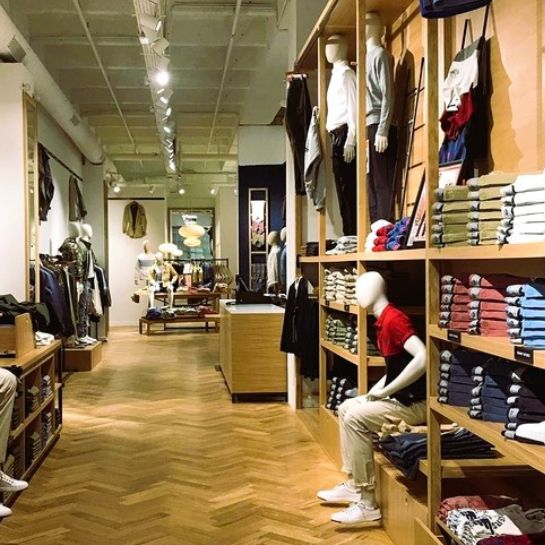19.12.2024
Smart retail furniture and equipment combine new technologies with traditional display forms. Advanced solutions, such as motion sensors, touch screens, and RFID systems, enable interaction with customers and collect data about their shopping preferences.
These solutions also allow for better utilization of sales space, which is especially important for small shops.
Smart retail furniture significantly enhances customer service quality by personalizing the shopping experience. By using RFID technology and sensors, it is possible to gather and analyze data on shopping preferences. For instance, in clothing stores, shelves equipped with interactive screens can suggest complementary products that match selected outfits.
Additionally, these systems can identify regular customers and offer them special promotions or discounts based on their purchase history. This makes customers feel appreciated and more likely to return.
Manufacturers also benefit from the solutions used in smart retail furniture, such as the ability to remotely monitor shelf contents.
For example, a smart shelf produced by Modern Expo, equipped with electronic modules, allows real-time tracking of product quantities at the point of sale. When the stock in a particular store falls below a predefined level, a notification is sent directly to the person responsible for replenishing the inventory.
Another example of smart retail equipment is a beverage cooler with geolocation functionality. By linking to a serial number, it enables remote temperature monitoring and, thanks to the integrated smart shelf, provides information on the products available inside.
Store owners can also install systems embedded in refrigeration equipment for full control and predictive maintenance. With sensors, service teams responsible for equipment upkeep receive advance notifications about potential malfunctions, ensuring timely repairs.
The use of smart retail furniture allows for much more efficient management of available sales space. Thanks to modular designs, stores can flexibly rearrange furniture layouts to adapt to seasonal trends and changing customer needs. Such solutions enable optimal utilization of every square meter, which is particularly crucial for small retail spaces.
Advanced technologies, such as adjustable shelves, allow for easy customization of height and display layout, ensuring better visibility and accessibility of products for customers.
Modern retail furniture enables retailers to collect data on consumer behavior within the store. Motion sensors and cameras can track customer movement paths and monitor which products attract the most attention. Analyzing this data helps optimize store layouts, enhancing shopping comfort and encouraging customers to stay longer.
Smart furniture also enables retailers to analyze which products are most frequently chosen and how customers respond to various spatial arrangements. This allows for more informed decisions about inventory management and product placement. Adjusting shelf layouts can improve the visibility of popular products, boosting sales.
Efficient space management, improved product placement, and the ability to quickly adapt to changing market demands make smart retail furniture an invaluable tool for increasing sales. Over the long term, this innovative approach to store management delivers significant financial benefits, fostering dynamic business growth.
Photo: Xianjuan / Unsplash, Modern Expo

12.02.2026
Dockers is one of the global apparel brands that Ergo Store has supported for years, delivering brick-and-mortar retail spaces across various parts of Europe. What are the most distinctive features of the brand’s store concept, which until 2025 was part of Levi Strauss & Co.?